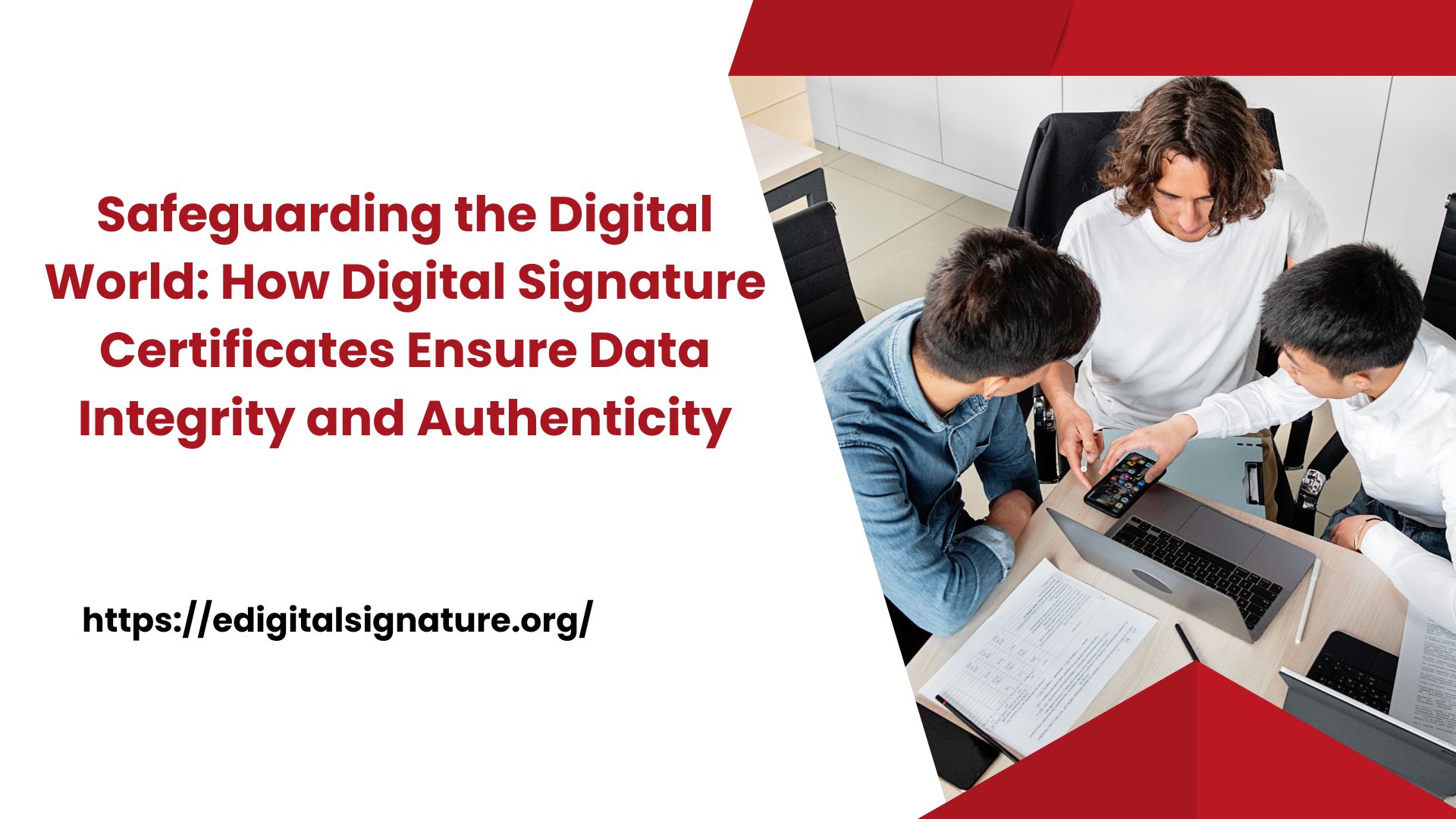Introduction
In today’s digital age, where data plays a critical role in every aspect of our lives, maintaining the integrity and authenticity of information is of utmost importance. From financial transactions to sensitive personal information, the security of digital data is crucial in building trust among individuals, businesses, and governments. This is where Digital Signature Certificates (DSCs) come into play. In this comprehensive article, we will explore the significance of DSCs and how they ensure data integrity and authenticity in the digital realm.
Understanding Digital Signature Certificates
A Digital Signature Certificate is an electronic file that binds an individual’s identity to specific data and confirms the authenticity of digital documents or messages. It acts as a digital equivalent of a handwritten signature, ensuring that the sender’s identity is verified and the contents of the document remain unchanged during transmission. DSCs are based on asymmetric encryption algorithms, usually using public key infrastructure (PKI), and rely on two essential cryptographic keys: a private key and a public key.
How Digital Signatures Work
When an entity (a person, organization, or system) wants to sign a digital document, they use their private key to create a unique digital signature. This signature is attached to the document before it is sent or made available to recipients. Upon receiving the document, the recipient can use the sender’s public key to verify the signature’s authenticity. If the signature is valid, it indicates that the document has not been tampered with and was indeed signed by the claimed sender.
Ensuring Data Integrity
One of the primary functions of a digital signature is to ensure data integrity. With the increasing reliance on digital communication and transactions, data can easily be manipulated or altered maliciously during transit. Digital signatures use hash functions to generate a fixed-size data string that uniquely represents the original document. This hash value is then encrypted with the sender’s private key to create the digital signature.
During transmission, if any changes are made to the document, even minor alterations, the hash value will differ from the one originally encrypted in the signature. When the recipient attempts to verify the signature using the sender’s public key. The verification process will fail, indicating that the data integrity has been compromised.
Verifying Data Authenticity
Apart from ensuring data integrity, digital signature certificates also play a vital role in verifying data authenticity. As mentioned earlier, a digital signature is uniquely tied to the sender’s identity. Before issuing a digital signature certificate, the Certificate Authority (CA) thoroughly verifies the applicant’s identity, ensuring they are who they claim to be. This identity authentication process enhances trust among parties involved in digital transactions.
Furthermore, the CA also ensures that each digital signature certificate is unique, preventing any fraudulent attempts to create false certificates. The reliance on a trusted third-party CA is crucial in maintaining the authenticity of the certificates and the credibility of the digital signatures they issue.
Applications of Digital Signature Certificates
Digital Signature Certificates find applications across various domains:
E-commerce:
DSCs secure online transactions by authenticating the seller’s identity and ensuring the integrity of purchase agreements, invoices, and payment details.
Government Services:
DSCs enable secure and legally valid online submissions for tax returns, legal documents, and applications for licenses or permits.
Healthcare:
DSCs facilitate the secure exchange of patient records, prescriptions, and medical reports between healthcare providers, ensuring patient privacy and data integrity.
Banking and Finance:
DSCs are used to sign electronic fund transfers, loan applications. And other financial documents, preventing unauthorized access and fraudulent activities.
Legal Contracts:
DSCs make it possible to sign and execute legally binding contracts digitally, eliminating the need for physical signatures and ensuring the authenticity of the parties involved.
Challenges and Future Developments
While Digital Signature Certificates offer robust data security, there are challenges to consider. The security of digital signatures relies heavily on the secure storage of private keys. If the private key is compromised, an attacker could impersonate the legitimate owner and sign documents fraudulently. Therefore, secure key management practices, such as hardware security modules (HSMs), are essential to safeguard the private keys.
Looking ahead, advancements in quantum computing pose potential threats to the current asymmetric encryption algorithms used for digital signatures. Quantum computers could potentially break these algorithms, compromising the security of digital signatures. To counter this, researchers are exploring post-quantum cryptography solutions that can resist attacks from quantum computers.
Suggested Read: Online Digital Signature Certificate Guide
Conclusion
In conclusion, Digital Signature Certificates play a vital role in ensuring data integrity and authenticity in the digital world. By employing advanced cryptographic techniques. DSCs protect the integrity of digital documents and verify the identities of senders, fostering trust and confidence in online interactions. As technology continues to evolve, it is crucial for businesses, individuals. And governments to stay abreast of the latest developments in digital security and continue implementing robust measures to protect their data and maintain the authenticity of their digital signatures.





